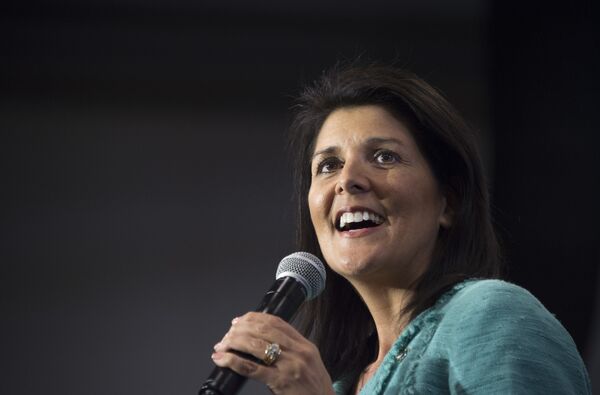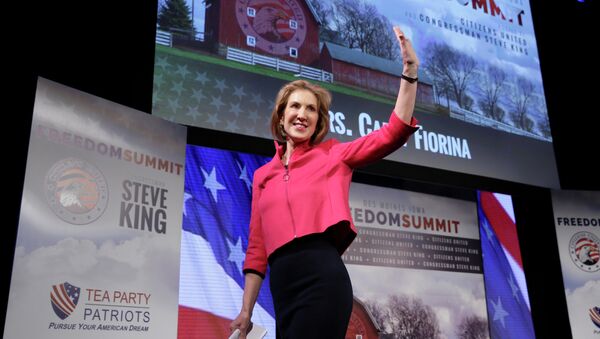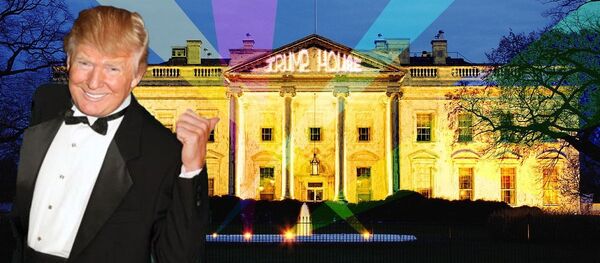MOSCOW (Sputnik) — A CNN/ORC poll conducted in March found that eight in 10 US nationals believed the country was ready for its first female president, and progress toward gender equality could be seen across the US political spectrum. Twenty-one women won seats in the US Senate — an increase from the 20 women in the current Senate, including four new Democrats, three of whom are women of color.
In her concession speech on Wednesday evening, Clinton said, "I know we have still not shattered that highest and hardest glass ceiling, but someday someone will — and hopefully sooner than we might think right now."
Although candidates' bids for the next election will be announced in the summer of 2019, a number of prominent women already have the potential to run in 2020.
Hillary Clinton
Her decades of public service as the first lady, New York senator, Democratic presidential candidate, secretary of state and the first woman to win the nomination for president of the United States give her the experience edge. If Clinton decides to run for a third time in 2020, she will be 73 years old by the time of the election.
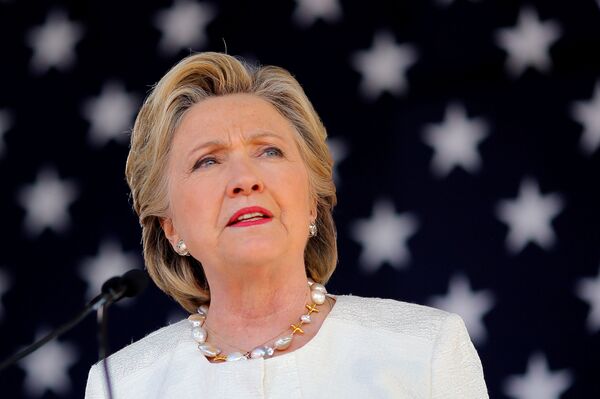
An ABC News exit poll found that 59 percent believed Clinton was not honest or trustworthy, which she would have to turn around to improve her chances of winning in the future.
Kamala Harris
Harris will be the fourth woman of color serving in the US Senate, where she will represent the state of California for the Democratic Party. She is the first female, first African-American, first Indian-American and first Asian-American attorney general of California.
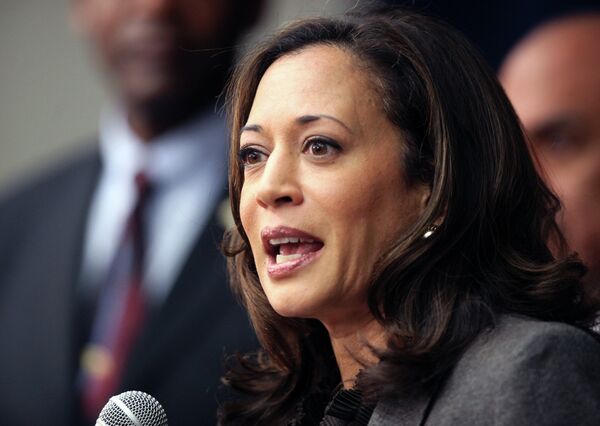
I intend to fight. I intend to fight against those naysayers who say there is no such thing as climate change.
— Kamala Harris (@KamalaHarris) 9 ноября 2016 г.
Michelle Obama
The current first lady has given numerous impassioned speeches at the Democratic National Convention and on the campaign trail. Despite her husband, current President Barack Obama, ruling it out in a radio interview on Friday, pleas for #Michelle2020 began trending on Twitter following Clinton's defeat.
Michelle Obama 2020 — We got four years! Let's go! @MichelleObama @BarackObama #michelleforpresident #Michelle2020 pic.twitter.com/gg8DhOmwK5
— J.R. Moody (@_senatormoody) 9 ноября 2016 г.
Kirsten Gillibrand
Democrat Kirsten Gillibrand holds the seat of junior senator from New York, vacated by Clinton when she became the secretary of state in 2009. She has pushed a female agenda, is an advocate of women holding political office and a supporter of gay rights, known for working on the "Don't Ask, Don't Tell" legislation. She is also known for tackling sexual assault on college campuses and in the military.

In 2014, Gillibrand told Time she'll consider running "someday," but said that Clinton would be "our first woman president." She has been named a potential female candidate for the 2020 election by The New York Times and National Public Radio (NPR).
Elizabeth Warren
In her first term as senator Democrat Elizabeth Warren gained popularity due to her stance against banks and free trade agreements, and helped create the US Consumer Financial Protection Bureau in the wake of the economic crisis. Warren has also advocated social security and student debt relief, gaining her widespread populist support.
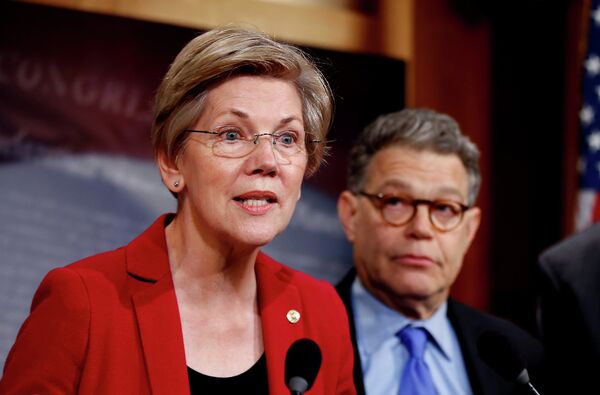
Carly Fiorina
Former CEO of computer company Hewlett-Packard and adviser to John McCain’s 2008 presidential campaign, Republican Carly Fiorina made it onto the stage in the 2016 Republican Party primary, facing 15 other male candidates, including Donald Trump. She withdrew from the campaign on February 10 after a weak Super Tuesday performance.
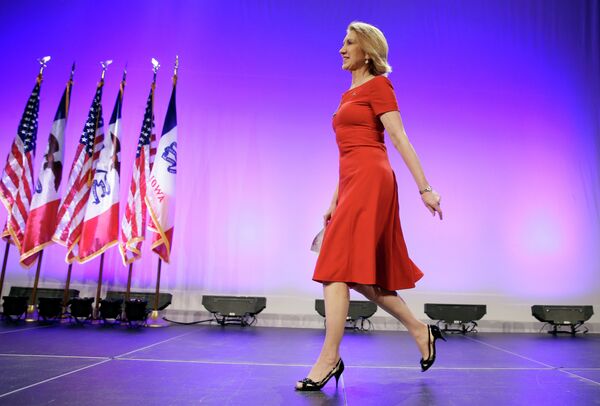
Fiorina remained vocal throughout the general election. In October, she posted on Twitter, demanding that Trump step down and let his running mate Indiana Gov. Mike Pence replace him, as he did not represent the Republican Party.
Nikki Haley
The current Republican governor of South Carolina is popular within the party. In July 2015, Haley caught the public's attention due to her successful drive for the removal of the Confederate flag from statehouse grounds. She was selected to give the official response to the State of the Union in January 2016. Her gender and Indian-American background stand for diversity, for the lack of which the media have criticized the party and the president-elect.
